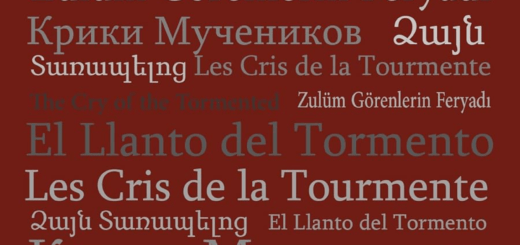With European Rabbis’ Convention in Baku, Armenia Misses a Strategic Opportunity — By Harut Sassounian

A significant development took place last week involving Azerbaijan, Turkey and Israel. While we are focused on the domestic crises in Armenia, we must not overlook important events involving neighboring countries — particularly hostile ones — because of their major impact on Armenia’s security and sovereignty.
This week, the 33rd convention of the Conference of European Rabbis, scheduled to take place in Baku, from Nov. 3-6, 2025, was cancelled at the last minute. It was to be attended by hundreds of Rabbis from dozens of Jewish communities worldwide, including Europe, the United States, and Israel. This would have been the first conference of Rabbis held in a Muslim country. Israel’s Chief Rabbis David Yosef and Kalman Ber, along with the Minister of Diaspora Affairs Amichai Chikli and Minister of Heritage Amichay Eliyahu, had planned to attend. Since the conference was to be held at the invitation of the Azerbaijani government, Pres. Ilham Aliyev would have delivered the keynote address, using the occasion to boast about Azerbaijan’ alleged tolerance for Jews and alliance with Israel.
Prior to the cancellation, the Conference of European Rabbis had announced that Baku convention’s participants “will explore Azerbaijan’s growing relationship with the global Jewish community with a central focus on its potential inclusion in the Abraham Accords…. Azerbaijan stands at the crossroads of dialog, diplomacy, and Jewish continuity.”
News sources gave a variety of reasons for the cancellation:
— Objections from Turkish political leaders such as Dogu Perincek, Chairman of the Vatan (Homeland) Party, who sent a letter to Pres. Aliyev urging him not to host the Jewish conference.
— Alarming security alerts and credible threats from Azeris living in Iran and Turkey intending to harm the conference participants.
— Threats from the Iranian government. The Jerusalem Post published an article with the following headline: “Iran threatens Azerbaijan into cancelling European rabbi conference.”
As a result, Israel’s Foreign Intelligence Agency (Mossad) imposed travel restrictions on the high-ranking Israeli officials and religious figures.
Azerbaijan relies heavily on Israel for the purchase of billions of dollars in advanced weapons, which played a critical role in the 2020 Artsakh War — killing and wounding thousands of Armenian soldiers, and occupying most of Artsakh’s territory. In return for these weapons, Azerbaijan sells over one billion dollars of petroleum to Israel (43% of Israel’s total oil imports) which is used for military actions in Gaza and elsewhere.
Israel National News reported that “hostile posts by Azerbaijanis residing in Turkey and Iran, who oppose the conference being held in Baku, have begun circulating on social media.” Following these threats, the Rabbis decided to cancel their convention and hold it later in another country.
Prior to the cancellation, the Conference of European Rabbis had announced that the participants would discuss “Abraham Accords, the promotion of freedom of religion, and the fight against antisemitism in Europe.” Rabbi Pinhas Goldschmidt, President of the Conference of European Rabbis, stated that his organization aims to promote dialog, interfaith activity and public engagement.
Azerbaijan would have exploited the holding of the Rabbis’ convention in Baku as a propaganda coup, falsely representing itself as a tolerant country for all religions and races.
Interestingly, in June of this year, the Conference of European Rabbis’ Standing Committee meeting, which was to be held in Sarajevo, Bosnia and Herzegovina’s capital, was also cancelled. Bosnia’s Federal Labor and Social Policy Minister banned the meeting, objecting to the mass killings of Palestinians by Israel in Gaza. In response, the European Union Commission issued a statement criticizing the cancellation: This “was a deliberate act of exclusion targeting Jewish religious leaders in the heart of Europe.”
The leaders of Azerbaijan and Turkey who describe their countries as “one nation, two states,” are close allies that share similar ethnic, religious and cultural ties. Therefore, it is rare for the two countries to publicly disagree. Nevertheless, disputes have occurred from time to time.
Back in 2009, Armenia and Turkey were on the verge of ratifying Protocols which would have resulted in opening the Armenian-Turkish border. Azerbaijan’s government criticized the Protocols and accused Turkish leaders of going back on their promises not to open the border until the Armenian government made concessions on Artsakh. Baku threatened to retaliate by cutting off oil exports to Turkey. Azerbaijan even shut down a number of Turkish mosques on its territory. Pres. Erdogan finally succumbed to Azeri pressure and instructed the Turkish Parliament not to ratify the Armenia-Turkey Protocols.
This would have been an opportune time for Armenia to drive a wedge between Azerbaijan and Turkey. Regrettably, as always, Armenian officials “never miss an opportunity to miss an opportunity.”
The second dispute between Azerbaijan and Turkey occurred in 2024, when Pres. Recep Tayyip Erdogan repeatedly stated that Turkey played a decisive role in Azerbaijan’s victory during the 2020 Artsakh War. An Azeri Defense official countered Erdogan by falsely claiming that no foreign troops were involved in Azerbaijan’s military conquest.
The scheduling of the convention of the Conference of European Rabbis in Baku, once again put Azerbaijan and Turkey in disagreement. Azerbaijan is a close ally of Israel, while Turkey is taking an extremely hostile position against Israel — so much so that Prime Minister Benjamin Netanyahu announced Israel will not allow Turkish forces in Gaza on a peacekeeping mission.
Armenian officials again failed to exploit the conflict between Armenia’s enemies. On the contrary, Armenia’s leaders seem hell-bent on appeasing Azerbaijan and Turkey — even when the two are at odds with each other.





